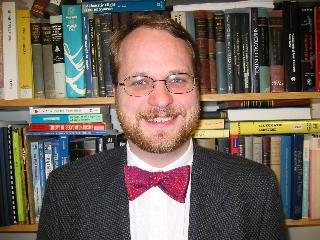Feedback Control Systems
Lecturer: Kent LundbergSystems that employ feedback control are all around you: stereo amplifiers, hard-disk drives, automobiles, radar antennas, and high-performance airplanes, to name a few. The creation of successful control systems almost always requires more than the application of a set of analytical techniques. Good feedback-system design requires the connection and application of theory to problems of practical interest, as well as a rich understanding of how to make trade-offs amongst all the parts of a system.This course covers the design of feedback systems, using the intuitive analysis tools of classical control theory. The course content includes time-domain, frequency-domain, and s-plane concepts that provide insight into the behavior of linear and nonlinear systems. Applications to the design of mechanical and electronic systems, including servomechanism design, vibration isolation, operational-amplifier compensation, power conversion, waveform generation, and phase-lock loops are explored.
- Introduction to Feedback Systems
- Transfer functions
- Drawing block diagrams
- Laplace transforms
- Desensitivity
- Modeling and Responses
- Drawing Bode plots
- Modeling and linearization of systems
- Relationships between time and frequency response
- Electric (DC) motors
- Stability
- Steady-state errors
- Linear system stability
- Maxwell, Routh, and Hurwitz
- History of control
- Root-Locus Method
- Pole-zero phase plots
- The characteristic equation
- Magnitude and angle conditions
- The root-locus rules
- Nyquist Criterion
- Conformal mapping
- Cauchy's Principle of the Argument
- Nyquist criterion
- Root locus and Nyquist examples
- Frequency-Domain Analysis
- Hall and Nichols
- Gain and phase margin
- Bode obstacle course
- The big picture
- Compensation and Design
- Motivation and goals
- Gain setting and dominant pole
- Series compensation
- Lead and lag
- Minor-Loop Compensation
- Minor-loop compensation
- Op-amp transfer function
- Acceleration feedback
- The error series
- Operational-Amplifier Compensation
- History of operational amplifiers
- Op-amp compensation for steady-state error
- Op-amp compensation for capacitive load
- Transimpedance amplifiers
- Nonlinear Systems
- Nonlinear systems
- Describing functions
- Oscillators (intentional)
- Conditional stability
Custom Courses
Custom courses, tailored specifically to your needs, are available. Inquire within.
Lecturer

Kent H. Lundberg is an educator, consultant, and historian. He is president of Keeling Flight Hardware, Ltd., which provides design, research, and educational consulting services in the fields of aerospace, electronics, and control systems for companies, universities, and government organizations.Since 2008, Dr. Lundberg has been a Visiting Professor at Olin College of Engineering, where he teaches courses in controls, circuit design, and instrumentation. From 2002 to 2005 and in 2011, he was a Lecturer with the Department of Electrical Engineering and Computer Science at the Massachusetts Institute of Technology. His research and teaching interests include the application of classical control theory to problems in analog circuit design, and the development of educational toys (lecture demos, take-home laboratory kits, and tutorial computer applications) for feedback systems and control engineering.
Dr. Lundberg was the Associate Editor for History of IEEE Control Systems Magazine from 2004 to 2011. He attended M.I.T. earning a Bachelor's degree in physics in 1992, and a Ph.D. in electrical engineering in 2002. He owns 43 Tektronix oscilloscopes, and he obsessive-compulsively collects analog synthesizers, technology artifacts, and classic textbooks on radar, nuclear energy, analog computing, and control.
Last updated at 10:11 on Thursday, 10 Jan 2013. by Kent Lundberg